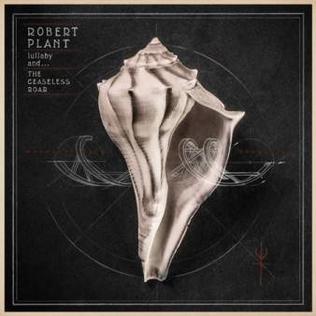What a surprise—after five years’ worth of red herrings, U2 “released” their next album via an iTunes event, essentially giving it free of charge to half a billion accounts worldwide, six weeks before its official release date.
Songs Of Innocence was available to anyone with access to the iCloud; reactions ranged from ecstatic, particularly among the band’s champions, to offended, in the view of those who felt such an “imposition” was an invasion of privacy. (Apple even devised an app that would remove the album from one’s music library; meanwhile, we can’t get the Zappos app off our Droid, but we’re not about to sue anybody over it.)
Despite the initially artless cover, the “digital booklet” offered copious song credits and lyrics, several pages of “thanks to”, and a kind of stream-of-consciousness liner note about the album’s influences. Seeing such names as Joey Ramone and Joe Strummer raises a red flag along the lines of Rattle And Hum’s evocation of other icons, but the songs are better than that, and thankfully, don’t include anything that can be associated with the Spiderman musical.
“The Miracle (Of Joey Ramone)” would be just fine without its dedication in the subtitle, particularly because the song doesn’t resemble the Ramones in any way (in fact, the clicking sticks remind us more of “Antmusic”). Ending with a decisive power chord slash, it sets up the comparatively quieter “Every Breaking Wave”, which soon builds into a classic U2 anthem, and it’s a keeper. “California (There Is No End To Love)” is possibly their most effective ode to an American city yet, mostly because it dwells more on the subtitle. Even the “vocal chorale” at the start only hints at the Beach Boys rather than emulating them directly, unless you count the cello flourish here and there. “Song For Someone” wins over the listener with, again, the “classic” sound and welcome Edge harmonies. “Iris (Hold Me Close)” is not the first time Bono’s written about his mother, but the knowledge makes some of the sentiment Oedipal. Too similar-sounding to tracks from the more recent albums, it could have used some more work, as does “Volcano”, a “dumb” song along the lines of “Vertigo” or “Get On Your Boots”.
The anti-terrorism tirade “Raised By Wolves” is the most experimental sounding track. We could do without the “vocal effects”, and the title phrase doesn’t sound so natural coming out of his mouth, but the track does evoke an earlier decade. Another throwback of sorts is “Cedarwood Road”, both lyrically and in the glockenspiel that suggests a musical rewrite of “Electrical Storm”, one of their least notable singles. One reviewer called “Sleep Like A Baby Tonight” a portrait of a pedophilic priest, which isn’t obvious in the lyrics, but it’s still an unsettling listen. While dedicated to Joe Strummer, “This Is Where You Can Reach Me Now” doesn’t sound like any Clash song we’ve ever heard, except in its seeming evocation of street violence. Consequently, “The Troubles” isn’t about Ireland, but inner conflict. A female vocalist is prominent, reminding us of a latter-day Duran Duran hit or a movie soundtrack bid. (Hey, at least it wasn’t Rihanna or somebody trendy like that.)
U2 was of the stature now that any new album gets the “best work since” tag that the Stones have held for three decades, and have long been stuck, if not a moment they can’t get out of, then in the uncomfortable position of having to compete with their own legacy. By not laboring too much over the presentation—though we can’t figure out why it takes so many producers to create an album that sounds like a unified distillation of the band’s entire career—they seem to have been more concerned with “writing songs” than “creating sonics”. While Songs Of Innocence is not necessarily a triumph, it succeeds, it’s not too long, and besides… it was free.
Sure enough, a physical release happened, complete with a new cover depicting a shirtless Larry embracing his shirtless son. A more deluxe edition came with a bonus disc that begins with two more songs—the trashy, B-side caliber “Lucifer’s Hands”, and “The Crystal Ballroom”, which rips off its disco backing from “Love Is The Drug”. A 22-minute “acoustic medley” of six of the main album’s songs didn’t need horns and strings. An alternate mix of “The Troubles” tones down the female voice, though the alternate mix of “Sleep Like A Baby Tonight” isn’t an improvement. Hidden at the very end is “Invisible”, which had already been given away earlier in the year. It’s a much better song than its techno arrangement would suggest, once again begging the question why they have to labor over things so damn much.
U2 Songs Of Innocence (2014)—3





